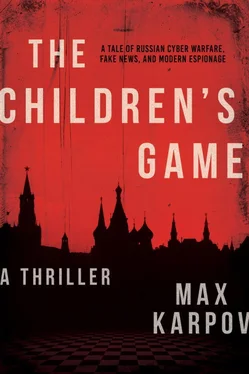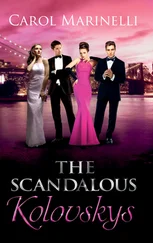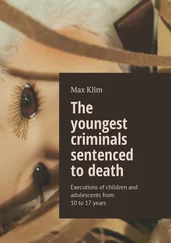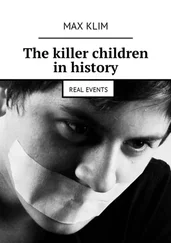“And what did Strickland tell you, exactly?”
“Not much. No more than a few sentences that were worth anything.”
“Tell me.”
She shrugged. “Just—we’d be talking about Russia, or Putin, and he would say something like, ‘And what if it was possible for us to eliminate that problem?’ And I’d make a stupid face and ask a couple of questions and store it all away. I think I may’ve eventually freaked him out a little with my questions. In the end, he cut me off cold turkey.”
“When was this?”
“A week ago? Ten days.”
“And then the plane happened,” Jon said. “You say you had no idea ahead of time?”
“Of course not.” He noticed the shadow of hair across her upper lip as she turned her head. “But then when I saw what happened, and I saw your country was being blamed, my first thought was, ‘So, they were right. The US really did this. ’ And at the same time, I felt guilty.”
“Why guilty?” Jon said.
“Because. I knew something was coming and I hadn’t been able to stop it. Of course, it took another few hours before I found out the truth. And then I realized I’d been duped.”
“How?”
She looked at her wine, formulating a reply. “Until then I believed that the United States, or some group in the government, or the military, really was planning to eliminate Putin. Michael was egging me on a little with that, making me believe it. So when I found out he was alive, I freaked out. Because there were a couple of remarks Michael made that were very suspicious in hindsight. And then eventually it all came together. And I thought: of course they knew about it. They knew about it because they had planned it.”
“‘They’ being your father? And Michael?”
She nodded, keeping her eyes down.
“You need to talk to someone,” Jon said, feeling responsible for her all of a sudden. “You need to make a request for immunity.”
“I know I do.” She held her wine glass in both hands. “Why do you think I’m talking with you? Are you going to help me?”
“I will, yes.”
Jon tried to remember Roger Yorke’s phone number. But he wanted to hear the rest of her story first.
“So you believe now that your father was involved? That he may’ve planned the attack, as these reports are saying—”
“ Helped plan it. Yeah, I do.”
“And you believe the Russian president was also involved?”
She made a face. “If not, there’s no reason my father would’ve done it,” she said, a catch in her voice. “But I’ll tell you the thing I’m afraid of. It’s that my father gets blamed for all this and the little monster gets away again. My father, he used to say, ‘little thieves are hanged, the great ones escape.’ I used to think that maybe he was a great one. He acted like it. But he wasn’t; he just worked for one.” She took a long drink. The glass made a louder-than-expected thunk on the wooden table. “You know, my mother used to say, ‘Why does your father make things so difficult for himself?’ We never knew. I think it goes back to his own family. His father left when he was three or four years old and he was always looking for authority figures. And Putin became kind of a father figure to him. The biggest authority figure in the world, right?”
“So tell me the real story,” Jon said, pivoting to what she’d told him on the drive downtown. “You said there was a ‘real’ story you could share.”
“Yeah. There is.” She gave him a lingering look. “There was this thing my father used to say, going back, about the ‘catalyst.’ That’s what he called it. ‘All it takes is a catalyst.’ A match to light a fuse and the United States will go up in flames, same as the Soviet Union did in 1991. The US is just as vulnerable, even if they don’t know it yet. They talk about that a lot in Russia now, you know, the so-called political theorists. They talk about the breakup of the United States and the resurgence of Russia as if they’re the same thing.”
“Strategic relativism,” Jon said.
“Yeah, right.” A flicker of recognition crossed her face. “Anyway, the catalyst sets off a chain reaction. But first you have to create a pathway. That’s Michael’s business, basically. That’s what his mission is here: creating the pathway. I’m not supposed to know that, of course,” she said. “But you spend enough time around someone, you figure things out.”
“Michael works with nonprofits, you said.”
“He helps coordinate a whole network, yeah, that’s what he came here for. Nonprofits, think tanks, media companies, charities, political action groups. Influence operations, basically. My father used to say, ‘America is sleeping. Anyone can walk in the house now and take whatever they want. Even the ownership deed.’ It’s the weakness of an open society.”
“The ultimate purpose of this infiltration being what, then?” Jon said. “To break the country apart?”
“I guess. I don’t really know the ultimate purpose.” She lifted her glass and pointed it at the blank television screen; the color of her fingernails was slightly darker than the wine. “Secession is in the news now in Texas, right? But it’s set up to go in other states, too. If you want to break up the United States, do it from within. Disrupt their culture; create racial, social, and political unrest. But let their own people do it. Make them think things are bad and soon they will be. That was one of my father’s big ideas.
“And in some cases, of course, there are organizations already doing it,” she went on. “Ready-made fringe groups, Michael calls them. Like some of these so-called patriot groups that want to destabilize the government. They’ve done the same thing in Europe.”
“So August 13 was a catalyst for that. That’s what you’re saying?”
“I think so.” She took a sip of wine and set her glass down. “You know, when I was little, my father taught me a certain kind of chess that you could win in four moves. But he warned me: it only works with players who don’t know the game.”
“And the United States doesn’t know this game. Is that what you’re saying?”
Sonya shrug-nodded.
“How much of this can I write?” he said.
“It doesn’t really matter. I don’t care that much about your story, to be honest. I care about what’s going to happen to me.”
“All right. Let’s make the call.”
Jon had left his cell phone in his car, he remembered. So he used the room phone instead, as Sonya stood and walked to the window, taking in the view of the city. He reached Roger Yorke at his home, hoping no one was listening in on them. “ Stay with Sonya, ” Roger instructed him, and he would contact the federal marshals program. Ten minutes later he called back to say that a federal agent was on his way to the Hilton. Roger, too, would be down, to give Jon a ride home.
He wondered for a while if Sonya might change her mind in the interim. If she’d be tempted to return to the familiarity of her life in Washington with Michael Ketchler. But he could see she was already past that. Whatever secrets and self-consciousness she had carried into this hotel room fell away and she talked with an expanding energy and confidence, telling Jon about her upbringing, her parents, her younger sister Svetlana, her mother’s death in England, her brief, troubled marriage to Edward Larsen, and the odyssey that had brought her to Washington. Her resolve only seemed to harden as they talked, and he understood why she had brought him here: this room was her escape hatch to a new life. Jon listened, prodding her slightly with questions while becoming lost several times in the dark intensity of her eyes—imagining the places they’d been, the people they’d seen.
Читать дальше












